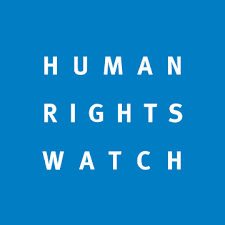
From Human Rights Watch:
Killings, Removals, Other Abuses Threaten Rights; Bold Policy Response Needed
- Governments across the globe are reaching beyond their borders and committing human rights abuses against their own nationals or former nationals to silence or deter dissent.
- Methods of “transnational repression” include killings, abductions, unlawful removals, abuse of consular services, the targeting and collective punishment of relatives, and digital attacks.
- Governments should identify transnational repression as a specific threat to human rights, offer protection for victims, and take steps to ensure they are not complicit.
(New York, February 22, 2024) – Governments across the globe are reaching beyond their borders and committing human rights abuses against their own nationals or former nationals to silence or deter dissent, Human Rights Watch said in a report released today. These abuses leave individuals unable to find safety for themselves or their families. Governments and international institutions should take tangible steps to combat what is often referred to as “transnational repression” without inadvertently harming human rights in the process.The 46-page report, “‘We Will Find You’: A Global Look at How Governments Repress Nationals Abroad,” is a rights-centered analysis of how governments are targeting dissidents, activists, political opponents, and others living abroad. Human Rights Watch examined killings, removals, abductions and enforced disappearances, collective punishment of relatives, abuse of consular services, and digital attacks. The report also highlights governments’ targeting of women fleeing abuse, and government misuse of Interpol. “Governments, the United Nations, and other international organizations should recognize transnational repression as a specific threat to human rights,” said Bruno Stagno, chief advocacy officer at Human Rights Watch. “They should prioritize bold policy responses that are in line with a human rights framework and uphold the rights of affected individuals and communities.”The report includes over 75 cases previously documented by Human Rights Watch committed by over two dozen governments, including Algeria, Azerbaijan, Bahrain, Belarus, Cambodia, China, Egypt, Ethiopia, Iran, Kazakhstan, Russia, Rwanda, Saudi Arabia, South Sudan, Tajikistan, Thailand, Türkiye, Turkmenistan, and the United Arab Emirates. The cases are not exhaustive but instead offer a snapshot of cases across four regions.Transnational repression can have far-reaching effects, causing a serious chilling effect on the rights to freedom of expression, association, and assembly for those who are targeted, or who fear they could be targeted.The cases reviewed by Human Rights Watch show how governments have targeted human rights defenders, journalists, civil society activists, political opponents, and others they deem a threat. One dissident was told by government authorities, “we will find you, and we will kill you.” Soon after, he disappeared and his whereabouts remains unknown. Many victims are asylum seekers or refugees in a new country. Officials from their home governments told one victim that they will “end up dead” if they speak out. Targeted people’s families who stayed in their home country may also become victims. One individual targeted said, “If they can’t get you, they will get your relatives.” Some victims have found themselves back in the hands of the governments they once fled after being unlawfully extradited or deported back to their country of nationality. Governments also carry out abductions and enforced disappearances. Individuals have been abducted outside their homes or even while on commercial flights. Forcible disappearances have led to other grave rights abuses, such as torture or extrajudicial execution.
 Some governments have sought the return of individuals through the International Criminal Police Organization, Interpol, by issuing a “Red Notice,” a non-binding request to law enforcement in all Interpol member countries to locate and provisionally arrest a person. They have issued politically motivated Red Notices, including in ways that are against Interpol’s rules and standards, under baseless charges, to enlist other governments to locate the individuals they are targeting abroad. Governments have targeted family members of dissidents who are still in their home country as retaliation for a person’s activities abroad. Relatives have been harassed, threatened, arbitrarily arrested and detained, barred from foreign travel, or even killed.Governments have used spyware to surveil a rights defender or harass an individual online who was openly critical of the government. These digital forms of transnational repression involve severe rights abuses including the violation of the right to privacy.Governments should put victims at the forefront of their response to these forms of repression, Human Rights Watch said. They should be particularly mindful of the risks and fears experienced by refugee and asylum communities. They should denounce cases of transnational repression when it is safe to do so, investigate and prosecute those responsible, and pursue legislation if current laws are inadequate.The United Nations should establish a special rapporteur on transnational repression to report on trends and efforts by governments to address it. Interpol should set benchmarks on human rights for member states to meet in order to issue Red Notices, and subject governments with poor human rights records to further scrutiny when they submit Red Notices. “Human Rights Watch’s research illustrates the vast rights implications of transnational repression for victims and their families across the globe,” Stagno said. “Governments should dedicate resources to understand how transnational repression occurs on their soil and take needed steps to better protect those who initially came looking for safety.”
Some governments have sought the return of individuals through the International Criminal Police Organization, Interpol, by issuing a “Red Notice,” a non-binding request to law enforcement in all Interpol member countries to locate and provisionally arrest a person. They have issued politically motivated Red Notices, including in ways that are against Interpol’s rules and standards, under baseless charges, to enlist other governments to locate the individuals they are targeting abroad. Governments have targeted family members of dissidents who are still in their home country as retaliation for a person’s activities abroad. Relatives have been harassed, threatened, arbitrarily arrested and detained, barred from foreign travel, or even killed.Governments have used spyware to surveil a rights defender or harass an individual online who was openly critical of the government. These digital forms of transnational repression involve severe rights abuses including the violation of the right to privacy.Governments should put victims at the forefront of their response to these forms of repression, Human Rights Watch said. They should be particularly mindful of the risks and fears experienced by refugee and asylum communities. They should denounce cases of transnational repression when it is safe to do so, investigate and prosecute those responsible, and pursue legislation if current laws are inadequate.The United Nations should establish a special rapporteur on transnational repression to report on trends and efforts by governments to address it. Interpol should set benchmarks on human rights for member states to meet in order to issue Red Notices, and subject governments with poor human rights records to further scrutiny when they submit Red Notices. “Human Rights Watch’s research illustrates the vast rights implications of transnational repression for victims and their families across the globe,” Stagno said. “Governments should dedicate resources to understand how transnational repression occurs on their soil and take needed steps to better protect those who initially came looking for safety.”
HRW How Govt Will Find You







Comments